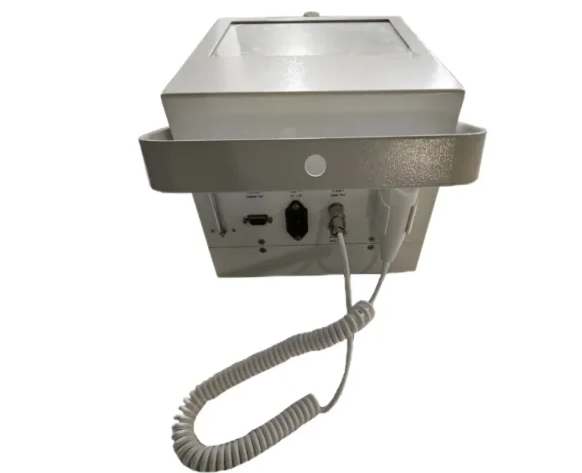Reliability Challenges of MOSFETs in Heavy-Duty Industrial Environments
In heavy-duty industrial applications, MOSFETs (Metal-Oxide-Semiconductor Field-Effect Transistors) are critical for controlling power, switching, and voltage regulation. Industries such as industrial automation, power supplies, high-speed machinery, and robotics rely heavily on these devices for efficiency, safety, and longevity. However, heavy-duty environments pose unique reliability challenges that can compromise MOSFET performance if not properly addressed.
Mengke Electronic, a national high-tech enterprise specializing in semiconductor devices, provides a wide range of MOSFETs and offers OEM/ODM customization solutions to meet the rigorous demands of industrial environments. Understanding the failure modes and reliability factors is essential for engineers and procurement specialists to select the optimal components for long-term operation.
1. Thermal Stress and Heat Management
MOSFETs in industrial applications often operate under high current densities, generating significant heat. Excessive junction temperatures can lead to:
-
Thermal runaway: Excess heat increases leakage current, further heating the device.
-
Reduced lifespan: High temperatures accelerate degradation of the gate oxide and metallization layers.
-
Packaging failure: Thermal expansion mismatch can crack solder joints or ceramic substrates.
Mitigation Strategies:
-
Use MOSFETs rated for high junction temperatures (e.g., 150°C or higher).
-
Implement effective heat sinks and thermal pads for improved dissipation.
-
Consider parallel MOSFET configurations to reduce individual device load.
2. Voltage Spikes and Transient Stress
Heavy-duty industrial circuits often encounter voltage spikes, inductive kickbacks, and load switching transients. These can stress MOSFETs beyond their rated voltage, causing:
-
Gate oxide breakdown leading to permanent failure.
-
Avalanche stress damaging the semiconductor die.
-
Uncontrolled switching events, potentially harming connected equipment.
Solutions:
-
Select MOSFETs with high Vds rating and avalanche capability.
-
Use TVS diodes or snubber circuits to absorb transients.
-
Implement robust gate driver circuits to control switching speed and prevent oscillations.
3. Environmental Factors: Moisture, Dust, and Vibration
Heavy-duty industrial environments are often harsh, exposing MOSFETs to:
-
Moisture and humidity, leading to corrosion of leads and PCB surfaces.
-
Dust and particulate contamination, potentially creating leakage paths or shorts.
-
Mechanical vibration, causing solder fatigue or wire bond failure.
Preventive Measures:
-
Use hermetic or conformal-coated packages for high reliability.
-
Implement PCB layout techniques that reduce stress on components.
-
Opt for industrial-grade MOSFETs designed for vibration and environmental resilience.
4. Switching Losses and Efficiency Considerations
In high-power industrial applications, switching frequency is often high, leading to:
-
Increased power loss due to gate charge and output capacitance.
-
Heat accumulation, further challenging thermal management.
-
EMI generation, affecting surrounding sensitive devices.
Optimization Techniques:
-
Choose MOSFETs with low Rds(on) and optimized gate charge.
-
Apply soft-switching or synchronous rectification methods to reduce switching loss.
-
Use proper PCB layout to minimize stray inductance and EMI.
5. Long-Term Degradation and Reliability Testing
MOSFETs can degrade over time due to:
-
Hot carrier injection, gradually reducing transconductance.
-
Gate oxide stress, affecting threshold voltage and leakage.
-
Package fatigue, leading to detachment of die or wire bonds.
Testing and Qualification:
-
High-temperature operating life (HTOL) tests simulate long-term thermal stress.
-
Power cycling tests evaluate resilience under repeated on/off switching.
-
ESD and surge testing ensure devices withstand transient events.
Mengke Electronic subjects all industrial MOSFETs to rigorous testing, guaranteeing compliance with international standards and suitability for harsh industrial environments.
6. Packaging and Integration Challenges
Industrial MOSFETs must maintain mechanical integrity and electrical performance. Packaging choices influence:
-
Thermal dissipation efficiency
-
Vibration resistance
-
Ease of PCB integration
Available packages include SMA, SMB, SMC, SOT-23, DO-41, and others, offering engineers flexibility for high-density circuits or high-current applications.
7. Customized Solutions for Heavy-Duty Applications
Heavy-duty industries often require tailored solutions:
-
Specific voltage and current ratings
-
Enhanced thermal and mechanical robustness
-
Custom packaging or pin configurations
Mengke Electronic provides OEM/ODM services, ensuring MOSFETs meet exact application requirements while maintaining performance and reliability.
8. Economic Considerations
Selecting MOSFETs with proper ratings and reliability features reduces:
-
Maintenance costs, minimizing unplanned downtime.
-
Replacement frequency, extending equipment lifecycle.
-
Energy losses, improving operational efficiency.
Investing in industrial-grade MOSFETs with thorough testing ensures both operational stability and long-term cost-effectiveness.
9. Practical Recommendations
-
Evaluate operating conditions: temperature range, load currents, and switching frequency.
-
Choose industrial-grade MOSFETs with high reliability and proven track record.
-
Implement thermal management solutions like heat sinks or active cooling.
-
Protect against voltage spikes with TVS diodes, snubbers, and proper gate driving.
-
Monitor environmental exposure and use conformal coating or hermetic packaging when necessary.
Frequently Asked Questions (FAQ)
Q1: What makes industrial MOSFETs different from consumer-grade MOSFETs?
A1: Industrial MOSFETs are designed for higher thermal, mechanical, and electrical stress, with longer life cycles and wider voltage/current ratings.
Q2: Can a MOSFET survive repeated voltage spikes?
A2: Only if rated for avalanche energy and combined with protective circuits. Proper design is critical.
Q3: How important is thermal management?
A3: Extremely important. Heat accumulation reduces performance, accelerates degradation, and can cause catastrophic failure.
Q4: Are OEM/ODM MOSFETs available for specialized industrial equipment?
A4: Yes. Mengke Electronic provides customized packaging, ratings, and performance features to meet unique industrial requirements.
Q5: How do vibration and mechanical stress affect MOSFET reliability?
A5: Excessive vibration can cause solder fatigue, wire bond failure, or package cracking. Proper design, mounting, and packaging mitigate these risks.
Conclusion
MOSFETs are indispensable in heavy-duty industrial environments, but their reliability is challenged by thermal stress, voltage spikes, environmental factors, and switching losses. Choosing the right industrial-grade MOSFETs and implementing robust thermal, mechanical, and electrical safeguards is essential for long-term operation.
Mengke Electronic offers a comprehensive range of MOSFETs with high reliability, diverse packaging, and OEM/ODM customization, ensuring optimal performance even under extreme industrial conditions. By understanding the challenges and selecting appropriate components, manufacturers can maximize uptime, efficiency, and product longevity in demanding environments
www.jymskj.com
Shenzhen Mengke Electronic Technology CO. LTD

Average Rating